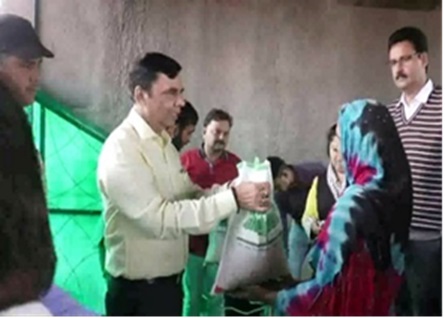
In Ambala, Haryana, the Deputy Commissioner, launched a unique initiative to combat plastic pollution by offering rice in exchange for plastic waste. This initiative was implemented following the imposition of a ban on single-use plastic by the Municipal Corporation of Ambala. The aim was to encourage residents to collect, segregate, and recycle plastic waste while simultaneously providing them with a basic necessity like rice.
Awareness Campaign: Prior to the launch of the scheme, the district administration conducted an extensive awareness campaign to educate the public about the harmful effects of plastic pollution on human health, wildlife, and the environment. Public announcements and notices were used to inform residents about the initiative and its objectives. Establishment of Collection Centres: Collection centers were set up at four locations (Ambala-I, Ambala-II, Barara, and Naraingarh) where residents could bring their plastic waste in exchange for rice. These centers served as hubs for collecting, segregating, and weighing the plastic waste brought in by the residents. Distribution Process: Upon bringing their plastic waste to the collection centers, residents were provided with rice equivalent to the weight of the plastic they brought in. This immediate incentive encouraged active participation from the community and ensured the success of the initiative. Disposal of Plastic Waste: The collected plastic waste was sent to nearby Cement factories and renewable energy power plants where it would be used as alternative fuel and raw material to produce electricity. This ensured proper disposal of the plastic waste in an environmentally sustainable manner.
The initiative received a positive response from the residents of Ambala, with many actively participating in the collection and exchange process. This demonstrated a significant change in behaviour towards plastic waste management within the community. More than 15 tons of plastic waste collected from residents of Ambala.
Incentivise participation: Local bodies administration should incentive the people for collecting plastic waste with items which are locally available and can attract active participation. Identify nearest collection points: ULBs can identify common collection points which are easily approachable and accessible. Existing infrastructures and assets can be utilised for collection and storage of plastic waste.
| Sr No. | Source |
|---|---|
| 1 | “Ambala taking strides to become first plastic-free district”, the Tribune; https://timesofindia.ind |
"The information presented in this success story is based on secondary research and may not be entirely accurate or up to date. Readers are encouraged to verify the information independently and exercise their own judgment. The Ministry of Environment, Forest and Climate Change does not endorse or take responsibility for the accuracy of the contents herein"